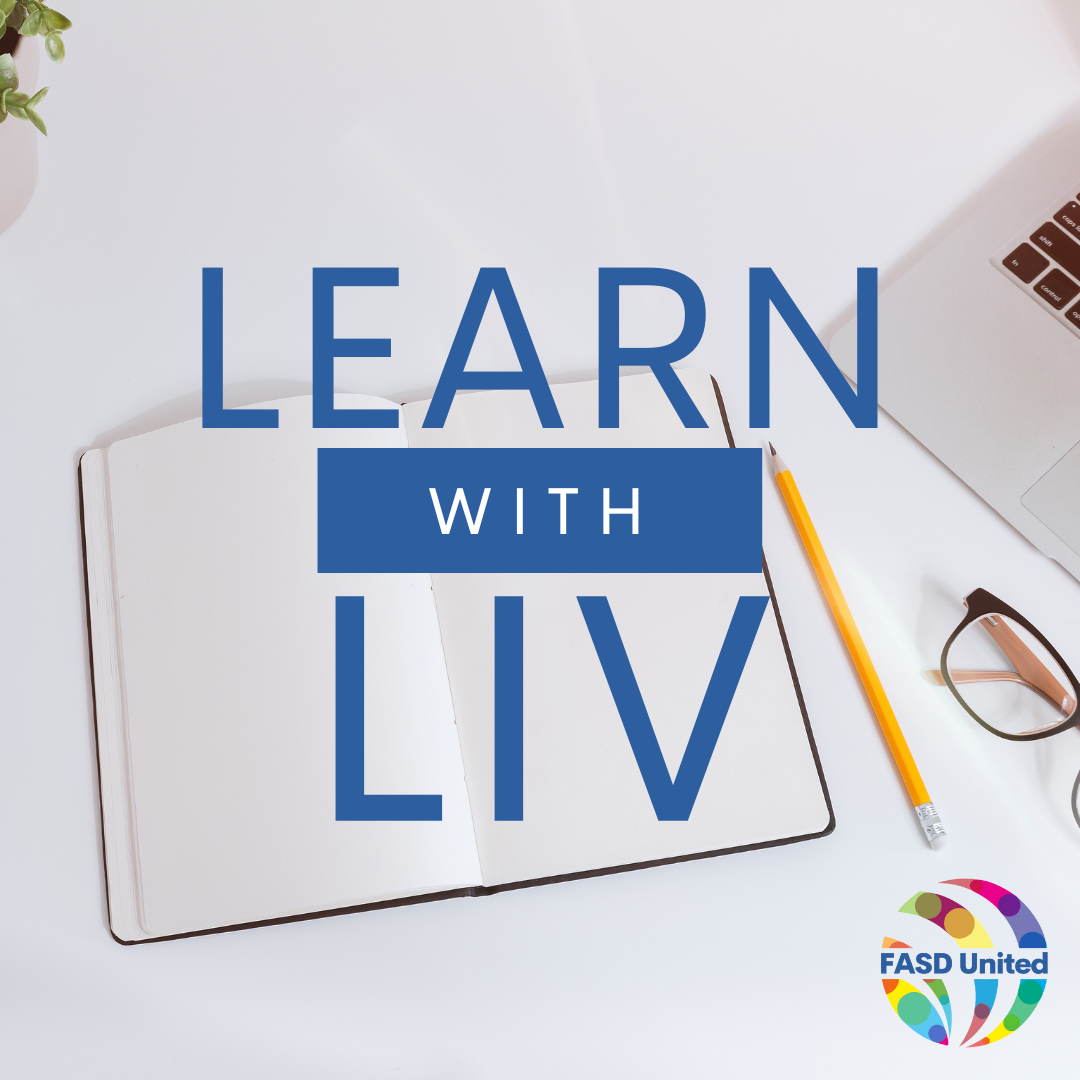Your cart is currently empty!

Learn With Liv: Internship at FASD United
As Liv interns at FASD United, she will be sharing the things she is learning and doing to inspire and explore FASD awareness through a public health lens. In her time with our organization, she will have opportunities to experience the roundedness of our programs, aid in important projects, and explore her understanding through reflection.
“This week I had many insights, and I am learning something new every day.
An important subject I learned about with FASD this week is how FASD can affect behavioral issues. Before joining the team of this organization, I had a pretty limited scope of my knowledge of FASD. One thing that shocked me is that the visible features of an individual who has FASD can be a small part of their diagnosis. A lot of the impacts of FASD are non-apparent. This can make it difficult for people to recognize that someone has an FASD or how to meaningfully respond. This is just one of the many reasons why FASD is so stigmatized in our society.
It is frustrating to learn how people may be dehumanized because of something that they can’t control. I have also learned how prevalent FASD is in children with the prevalence rate being about 1 and 20 school children in the United States. This can be especially hard for children who are in a new environment just starting school and for young children in general. Classmates could not know how to interact with their disability or even make fun of them, and they can have trouble learning. I personally was diagnosed with ADHD and dyslexia when I was younger, luckily I had a wonderful program at my school for kids that had similar learning disabilities. I got to learn in a separate safe space, and my teachers were incredibly patient and caring with me. It is my hope that no children with an FASD feel unsafe or unwanted in a classroom and that they have proper care and attention specifically designed for them. Just because a child has to have a unique way of learning does not mean they are not as smart or important as other children.
For the FASD United Awareness Observance Calendar, I specifically looked at different events throughout the year that can be used for media campaigns or social media projects. It was fascinating to learn how many important dates throughout the year there are that are not celebrated as much as I think they should be. Now that I have knowledge of these events, I’m excited to share with others and get the word out about any public health observances that people can participate in, donate to, or just spread the word about. For example, National Drug and Alcohol Facts Week is March 18-24th and National Public Health Week is April 1-7th. I added some ideas that I would like to see for various events as well. For example, I came up with the staff members writing a short message about their mother or motherhood, or having a child with FASD to share how their parents support them to celebrate Mother’s Day. I love reading personal stories, and I feel this could be uplifting, so I’m excited to see what the team comes up with for these important dates.
While researching for the weekly roundup, I got many insights on international work done for FASD. It is incredibly interesting to learn about different public health observances and how they vary from country to country. This week I specifically looked at an article that focused on rates of FASD in India and proposed interventions. I feel that we can use other countries’ interventions as a guideline for what we can do in the US. On the other hand, there are some things that the US does differently than other countries that have additional positive impacts. Overall, I think countries from around the world can learn from each other and collaborate to have a worldwide goal of lowering the prevalence of FASD, and supporting those living with them.
Looking ahead, I’m very excited to learn more about appropriate language and how to destigmatize FASD. I know that language is incredibly important when interacting with individuals who have FASD. When I was working with domestic violence victims, I had to abide by a language guide and learn what non-stigmatizing language to approach a survivor with. It is crucial to approach communication with sensitivity and empathy, and make sure that you emphasize support without imposing any judgments or assumptions. You want to use empowering language and avoid minimizing anyone’s struggles because FASD will look different for everybody.
Overall, I had a wonderful week of growing my education on FASD. I’m excited to work with the team on more projects and to start working in our brand-new space!”
